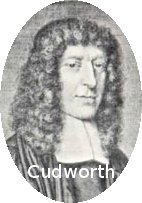podcast 255 – Aaron Shelenberger, from trinitarian to unitarian – Part 2
How could God allow mainstream Christian doctrine to go astray?
How could God allow mainstream Christian doctrine to go astray?
The “extra Calvinisticum” and the coherence of Chalcedonian christology.
Why did Eusebius have to submit his own creed at the famous council of Nicea in 325?
Back in 1983, the excellent scholar of early modern philosophy Sarah Hutton published an interesting little piece called “The Neoplatonic Roots of Arianism: Ralph Cudworth and Theophilus Gale” (in Lech Szczucki, ed. Socinianism and its Role in the Culture of the XVI-th to XVIII-th Centuries (Warsaw: Polish Academy of Sciences, 139-45). Professor Hutton informs me that it will be coming out in a collection of papers on the Cambridge Platonists. I’ll just very crudely summarize the piece, and make my point about it.

Read More »Plato: proto-trinitarian, or the Father of Arianism?
This is your introduction to the statement most Christian philosophers start with.
In 344 a meeting of Eastern bishops sent a statement to the West explaining their theology.
In the reign of Constantius II yet another council offered language to replace Nicea…
I have gone through all six. Which stage are you at, and what is keeping you from moving to the next?
The eastern emperor and the western emperor agreed: there needed to be a new ecumenical council to somehow solve the theological disagreements festering from the controversy over Arius in 324-5.
This “Fourth Creed” was offered as a non-controversial, “big tent,” ecumenical summary of faith. And surprisingly, given its initial reception, its language ended up being re-used several times after, as catholics struggled to replace the language of Nicea with something more widely acceptable.
An appealing theological option which is neither Nicene nor “Arian”?
In the New Testament “God” is nearly always the Father. But what follows from that, exactly?
“I will host a bonfire at which I and any of you who feel inclined can come and burn our copies of this book.”
The so-called Athanasian Creed (also known by the Latin words it begins with, Quicunque vult) is considered by many to be the very definition of “the” orthodox doctrine. It is of uncertain origin, although many readers think it has a strongly Augustinian flavor (which if true shows it is not from Athanasius himself, who died before Augustine was converted). It has long been considered authoritative… Read More »The Orthodox Formulas 3: the “Athanasian” Creed
According to recent research, about 3 in 10 Americans are evangelical Christians. But what exactly is an evangelical?
What is “mere” social trinitarianism, and why is it controversial among trinitarian theologians?
Ten basic questions that need to be answered, and ten more advanced questions.
Dr. Hurtado explains the term “early high christology” and what it means when applied to his own work.
In this episode I review the first portion of a recent debate/discussion between Dr. Bart Ehrman and Dr. Michael Bird, held at the at the 2016 Greer-Heard Point Counter Point Forum in February 12-13, 2016 at the New Orleans Baptist Theological Seminary.